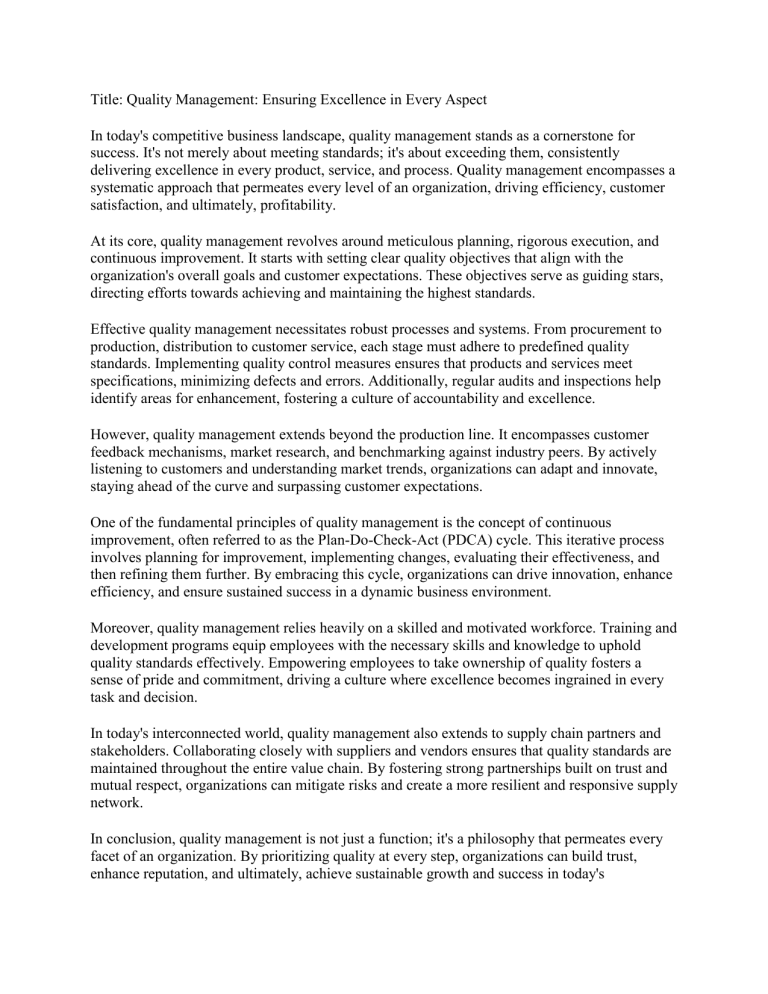
Title: Quality Management: Ensuring Excellence in Every Aspect In today's competitive business landscape, quality management stands as a cornerstone for success. It's not merely about meeting standards; it's about exceeding them, consistently delivering excellence in every product, service, and process. Quality management encompasses a systematic approach that permeates every level of an organization, driving efficiency, customer satisfaction, and ultimately, profitability. At its core, quality management revolves around meticulous planning, rigorous execution, and continuous improvement. It starts with setting clear quality objectives that align with the organization's overall goals and customer expectations. These objectives serve as guiding stars, directing efforts towards achieving and maintaining the highest standards. Effective quality management necessitates robust processes and systems. From procurement to production, distribution to customer service, each stage must adhere to predefined quality standards. Implementing quality control measures ensures that products and services meet specifications, minimizing defects and errors. Additionally, regular audits and inspections help identify areas for enhancement, fostering a culture of accountability and excellence. However, quality management extends beyond the production line. It encompasses customer feedback mechanisms, market research, and benchmarking against industry peers. By actively listening to customers and understanding market trends, organizations can adapt and innovate, staying ahead of the curve and surpassing customer expectations. One of the fundamental principles of quality management is the concept of continuous improvement, often referred to as the Plan-Do-Check-Act (PDCA) cycle. This iterative process involves planning for improvement, implementing changes, evaluating their effectiveness, and then refining them further. By embracing this cycle, organizations can drive innovation, enhance efficiency, and ensure sustained success in a dynamic business environment. Moreover, quality management relies heavily on a skilled and motivated workforce. Training and development programs equip employees with the necessary skills and knowledge to uphold quality standards effectively. Empowering employees to take ownership of quality fosters a sense of pride and commitment, driving a culture where excellence becomes ingrained in every task and decision. In today's interconnected world, quality management also extends to supply chain partners and stakeholders. Collaborating closely with suppliers and vendors ensures that quality standards are maintained throughout the entire value chain. By fostering strong partnerships built on trust and mutual respect, organizations can mitigate risks and create a more resilient and responsive supply network. In conclusion, quality management is not just a function; it's a philosophy that permeates every facet of an organization. By prioritizing quality at every step, organizations can build trust, enhance reputation, and ultimately, achieve sustainable growth and success in today's competitive marketplace. It's a journey of continuous improvement, guided by a relentless commitment to excellence.
